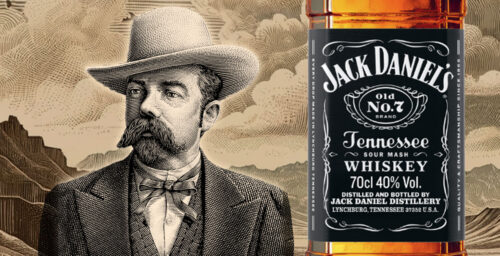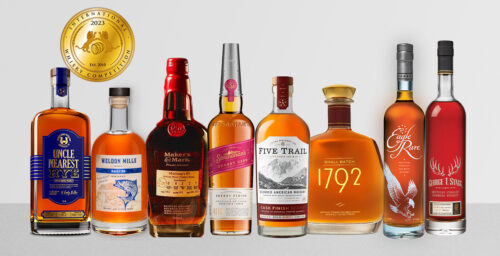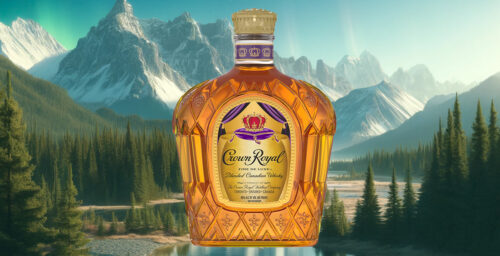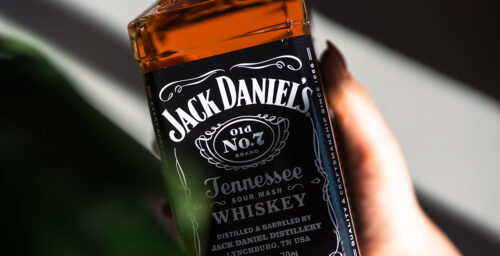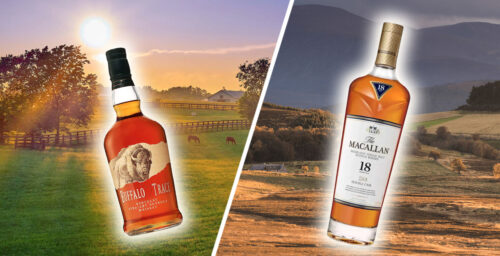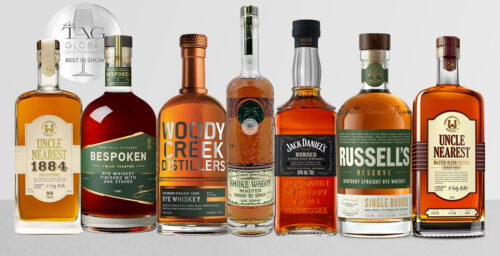The Uncle Nearest whiskey brand, as we’ve learned about over the years, honors the legacy of Nathan Green (Uncle Nearest), recognized as one of the first Black master distillers in the United States as well as the person responsible for teaching Jack Daniel how to distill. It was a story that, until recently, had somewhat fallen away from the annals of American whiskey history, but now today is importantly being told.
Much of the consideration that goes into what we know of Green now can be attributed to Fawn Weaver, a female African American author and entrepreneur that decided, after learning the story of the mentor of Daniel, to take it upon herself to bring more of his tale to light. Not only has she and her team done that in the ensuing years, but she’s also built a strong whiskey label in the process and helped to strengthen diversity in the industry.
To learn more about Uncle Nearest and its focus upon whiskey, diversity and more, we recently spoke with Weaver. Note this interview has been edited for clarity and brevity.
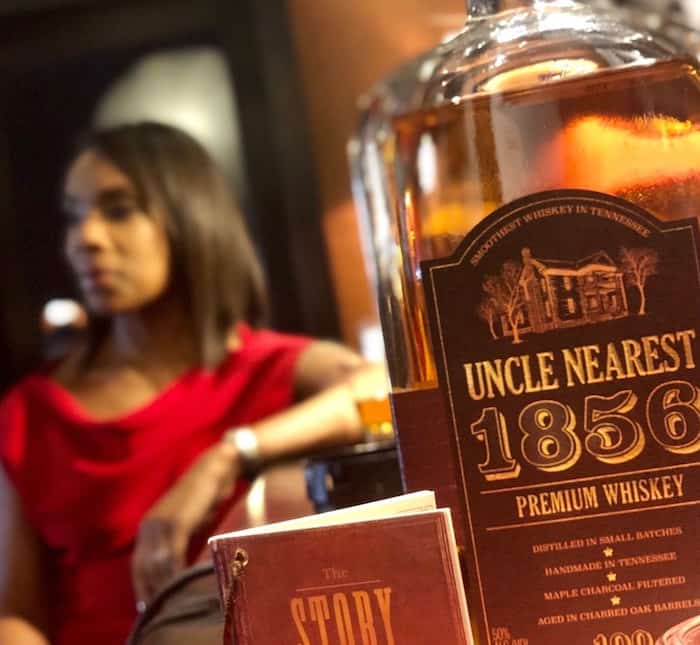
The Whiskey Wash (TWW): What is the backstory of Uncle Nearest and the brand associated with him?
Fawn Weaver: His legal name was Nathan Green, but everyone called him Nearest Green. And all of those in Lynchburg, friends, family, colleagues, all called him Uncle Nearest. Now in Lynchburg, the use of uncle or aunt was really a sign of respect. And it did not matter what color you were. So for instance, Jack Daniel used to have a brand called Uncle Jack because that’s how people referenced him in Lynchburg. So Nearest was Uncle Nearest. Jack was Uncle Jack. And so Nearest Green, the reason why we utilized his nickname versus his legal name is he was a formerly enslaved man. And the thing about enslaved people is a good number of them received their legal names through either the slave owners or the slave owner’s children. So at whatever point they could choose their own names, they typically went with either a completely different name or a nickname.
The reason why you do not see us use his legal name very often is his children and his grandchildren, as well as Nearest himself, on legal documents did not utilize Nathan. They utilized Nearest. And I’m talking about even wedding licenses and death certificates of his children that refer to their father as Nearest. And so that’s how we refer to him. But Nearest Green, what we now know and what we’ve discovered through an enormous amount of research is he was the first known African-American master distiller. And at the time it was called a head distiller, and now we call it a master distiller. There were tons of African-American distillers. What we have not seen in any historical context is a master distiller that was African-American, and even the distillers, we don’t actually know most of their names.
Nearest Green is really the only African-American master distiller from the 20th century that anyone knows, quite frankly, and most certainly from the 19th century. So that part we know. We also know that he was the first master distiller for Jack Daniel. He was his teacher. He was his mentor. He was his friend. And after the Civil War, after Jack turned at least 18, we don’t really, truly know what the exact year was that this happened, but after he turned 18, after the end of the Civil War, what we do know is that Nearest went from being his teacher and his mentor to Jack asking him to be his first master distiller.
TWW: What did he go on to do during the time at Jack Daniel’s?
Weaver: He just made whiskey. And one of the things that you’d have to say that he was known for, is the process that he utilized, which is now known as the Lincoln County process. It was named after the county where Nearest made whiskey, it’s where Nearest lived and his family lived. And that is also home to Jack Daniel distillery.
So the only difference between Kentucky bourbon and Tennessee whiskey, which are both straight bourbon whiskey by legal definition, is Tennessee whiskey utilizes an additional filtration step. We also have to use new American Oak barrels versus just new oak barrels. And it also has to be made in Tennessee. But in terms of the process, the only difference is that you take a traditional bourbon, and you filter it one additional time through sugar maple charcoal, prior to going into the barrel. The only thing that does, is it removes some of the impurities. So the fusel oils, the congeners, that type of thing, it gets removed before going into the barrel. That’s the only distinction.
Well, that was what Nearest taught Jack, it’s what he taught others in the area. And that is what he utilized in making his own whiskey.
TWW: How did you come to learn of this story and decide to bring it forward, to turn it into a new Tennessee whiskey brand?
Weaver: On how did I learn about the story itself, it was through the New York Times article written by Clay Risen, and I was in Singapore, and it was on the cover of the New York Times international edition. That particular story fascinated me enough to do a little bit more digging and to order Jack Daniel’s Legacy, which is Jack’s official biography written in 1967, at the height of the Civil Rights era. And you have a white reporter from Tuscaloosa, Alabama ,that comes to Lynchburg, Tennessee, to write the definitive biography of the most famous American whiskey maker we have ever known.
This biographer interviewed everyone who was around Jack, who knew him best, his friends, his family, his colleagues, his employees, that is who was interviewed to write this biography on this extraordinary man’s life. Nearest Green and his boys are mentioned more times than Jack’s own family, so what that said to me when reading the biography is that the story was much greater than what we saw in the New York Times.
More importantly, when I was reading the story, I was looking at the level of respect in which the biographer, the journalist was writing about Uncle Nearest and Uncle Jack, as if they were on the same level. What that said to me is that Jack’s descendants, those who were really the main people behind this biography, that they found it important for Nearest’s legacy to continue on.
And that, to me, was fascinating. In part, because it was 1967, but also in part, because you never had to mention an enslaved person helping, ever. It just isn’t a requirement. It’s not even an expectation for any literary work written back in the day. So the fact that they took the time to do it, and then as I continued digging, they did not just make sure his name was in the biography, but anytime they were interviewed in newspaper articles or magazine articles, they made sure that it was clear that Nearest Green was Jack’s teacher and his first master distiller. I thought that was extraordinary.
I looked at it as a story, telling the story from a book perspective. Beside my background as an entrepreneur, I’m also a New York Times bestselling author. I thought that this story, this unique relationship between this white orphan and this African-American man, could be my next story. And so I was pursuing it from a story standpoint. And then because my husband is an executive vice president at Sony Pictures, I also, of course, looked at it as an interesting movie, if it panned out. That was my true pursuit initially.
However, when I got to Lynchburg to do the research, the first people that I met were Jack’s family, his descendants. And they immediately dove in and began helping put me with Nearest’s descendants because they all grew up together. They were friends. They ate around the same dinner table. It’s an extraordinary story for that time. And in that place, in especially a town called Lynchburg. I became more and more fascinated with the story. The more people I met in Lynchburg, the more I learned. And I knew for certain that I was going to write this story.
In regards to the brand that’s separate and apart. While doing the research for the story itself, one of Jack’s descendants, who I would probably say that I would talk to the most here in Lynchburg during that period of time, I knew her as a realtor. I did not know her as anything other than that. And she shared one day, “If you ever decide to honor Nearest with a bottle, I will come out of retirement to make sure you get it right.”
I later learned that she had been in the family business her entire life. She’s on Jack’s side of the family. Really his nephew Lynn Motlow, who took over the distillery a few years before Jack passed away. But that is her lineage. And she had been in the family business 31 years. When she retired, she retired as their head of whiskey operations. And she grew up knowing this story. So the opportunity for her to be able to be a part of honoring this man who was very important to her own family, was important to her.
She and I talked a little bit over time, but I hadn’t made any commitments that I would do that. And I believe maybe a little bit later, I was doing an interview with some of Nearest’s family. I interviewed well over 100 of his family members, and I was doing it with one particular group up in Nashville. And I shared with them, everything I had learned about their ancestor. They shared with me everything they knew. And at the end of it, I asked them, what did they believe should happen to, or what would they like to see happen to honor their ancestor? And their answer was they believed that his name should be on a bottle, that he should have his own brand. That, coupled with what Sherrie Moore, who is now our head of whiskey operations, those two things combined is how the brand came to be.
TWW: Talk a little bit about the current successes of Uncle Nearest and what you attribute those to.
Weaver: We were the most awarded American whiskey or bourbon of 2019. And the reason why I separate out whiskey and bourbon is because you have a lot of bourbon drinkers that don’t realize that bourbon is still American whiskey, so I have to specify that for those who consider bourbon its own separate category. But for 2020, we are certainly pacing to be the most awarded for 2020, as well. And we’ve won everything from double gold in San Francisco to world’s best two years in a row, to best Tennessee whiskey three years in a row. So I’d say an enormous part of the success is what Sherrie Moore does. It’s her part in making sure that the juice is legacy worthy, that the whiskey that is in our bottles is worth people trying. And once anyone tries Uncle Nearest, the likelihood that they’re going to buy another bottle and another bottle and another bottle is very high.
That’s a part of what we attribute the success to, is the whiskey in the bottle is incredibly good. The other part, I think, that we contribute the success to is we have, hands down, the most diverse team this industry has ever seen. When you have everybody around the table coming up with ideas, that’s black, white, Asian, Latino, when everyone is around the table, then you think outside of the box naturally. I think a lot of what we have done is think outside of the box.
For instance, when the pandemic hit and craft distilleries were going down, 60, 70% is what they were reporting that their sales dropped, and most began laying off their sales team. We as a company decided that not only would we not lay off or furlough anyone, but we were going to amp up how many people we hired and that we were going to double down in this market.
I think you really are only bold enough to do that when you have a bunch of different thought partners that are a part of that conversation. You’re a little less risk averse, I think. And our nature is to just go for it, just pedal to the metal in every single thing we do.
The way that we look at things is a little different because we are fully convinced, as a team, that we can be the biggest, the best, the greatest at what we do. And so we don’t have any limits on ourselves, and we’ve decided to just fully go for it. And I think that the results that we are seeing are a part of this determination to see Nearest’s legacy long after we are no longer here, long after we are no longer living, and the next generation of the generation after that and the generation after that. That 10 generations from now, people just know who Nearest Green is, and they’re not learning about it. He just is a part of a household name.
TWW: In the context of what’s been going on in the last several months, in particular with the Black Lives Matter movement and everything around that, talk a little bit about what it’s been like for you, being an African-American owned business. What’s going on with you these days around this, and what’s going on in your head about what’s happening right now?
Weaver: Sure. This isn’t new to us. So what is going on, on the BLM side, we were already working on these issues of diversity within our industry and had been for well over a year, side by side with Jack Daniel’s. That is something that was very clear to me, being in this industry, that the number one challenge I saw with bringing more African-Americans in, and especially into leadership roles, is no one was applying.
There were so few African-Americans applying, that were qualified for positions. And that doesn’t mean your qualifications are in spirits. I mean coming from any industry and applying that into our industry, we simply weren’t getting the applications. And I knew if I, as an African-American owned brand that has the first distillery with an African-American’s name on it, and the first bottle of any spirit to commemorate an African-American, if with all of those things, I still wasn’t getting applications from African-Americans, that meant nobody was.
The question became, how do we make this happen industry more appealing to African-Americans, and how do we get more into the pipeline? So Jack Daniel’s and Uncle Nearest began working on the Nearest Green School of Distilling almost a year ago, long before all of this began the reckoning in our country, that was already well underway. The curriculum had already been written by Melvin Keebler, the VP over at Jack Daniel distillery. The number two over there is an African-American man, and he worked side by side with Sherrie Moore, who ironically is the one who hired him at Jack Daniel. But Sherrie Moore is our head of whiskey operations, and the two of them wrote the curriculum together.
When this country began really looking at itself in the mirror and seeing the inequality, and it was so blatant, what it did is, it allowed us to really be able to put something creative together about bringing people of color and specifically African-Americans into leadership. We’ve committed five million dollars, Uncle Nearest 2.5, Brown-Forman 2.5, for the Nearest and Jack Advancement Initiative.
The three pillars of that is one is the school, one is the leadership acceleration program. Finding apprentices that can go into the roles of head distiller, head of maturation, distillery plant manager, and on the distribution and marketing side, those four main positions. And we’ve begun.
And then there’s the BIP program, the Business Incubation Program, and that is coming alongside African-American micro distilleries and giving them every bit of tool and research that the big guys have. We are both lending our team members to micro distilleries that are African-American owned and helping to take them from not just surviving, but to thriving. And that’s that program.
My favorite movie of all time is a movie called Guess Who’s Coming to Dinner with Sidney Poitier and Tracy Spencer. There’s a part in the movie where Tracy Spencer is talking about the fact that he thinks that the black kids dance better than the white kids. And he says, “Are you telling me that they don’t have some kind of special rhythm?” And Sydney Poitier says, “No, there’s nothing special. It’s that you do the Watusi. We are the Watusi.”
That’s sort of the way I look at where our positioning has been in this industry. There was nothing that we needed to do that we weren’t already doing. The moment that the pandemic hit, we immediately launched Operation Brother’s Keeper. And that was specifically for the frontline workers, sending PPE to those on the front lines, in the hospitals, and all the rest of that. But then when we saw the numbers start coming in for African-American and Latin X, and seeing how disproportionately they were impacted, in terms of deaths from COVID-19, we didn’t have to have some type of reckoning in the world for us to do something.
We immediately got to work and rolled up our sleeves and began distributing close to 250,000 masks into the communities that are majority African-American and putting together flyers that are customized for every single city in which the death rate was over 70%. And so while everyone else was starting to do things, when all this happened, we were already doing it because it’s who we are.
TWW: How important to you is the discussion of race in this industry? And what do you think needs to happen to further it along?
Weaver: I’m not big on discussion. I’m big on action. I’m not big on statements. I think that what the Nearest and Jack Advancement Initiative is doing is going to change this industry because it is 100% action. When you’re talking about race in our industry I’m going to narrow it down to black because I assume that that’s really what we’re talking about here.
When you look at black Americans, specifically African-Americans in our country, you have to understand the American whiskey industry is not something we are going to be drawn to. Not because American whiskey does not want African-Americans in this industry, but because we, as a group of people, are number one, religious by upbringing. So most African-Americans you talk to were either raised Christian or Muslim. In both instances, our pastors and our ministers rail against the alcohol industry. So we, as a group of people, would not find this industry virtuous. That’s one of the problems.
The second problem is that this industry is built on heritage – as long as the American whiskey business has been around, it’s all been all about the families who run it, the families who distill. It’s been about heritage. So you have these great-great-great-grandchildren of people that are resurrecting these brands and bringing it forth, so it’s all about heritage.
Until Nearest Green, we did not know the name of anybody in this industry that wasn’t white male. That’s kind of difficult to make that appealing and to make that more diverse, if it’s an entire industry that is built on heritage. So that’s the second challenge, is that we would not naturally see ourselves in this industry. Until Uncle Nearest came along, the only people we ever saw were white males.
The third challenge that we have is African-Americans generally are not drawn to industries in which our ancestors did not have a choice in doing the work. You’re generally not going to see African-Americans as maids because our grandmothers and great-grandmothers didn’t have any other choice, but that one position. You’re generally not going to see us in tobacco or cotton because our ancestors did not have a choice in the matter. You’re not going to see us in American whiskey for the same reason.
So African-Americans not being in our industry is very unique to American whiskey. The only people that can really fix it are those of us on the inside of it. That’s about less discussions and more, how do we bring more in, how do we make this industry more appealing for other African-Americans?
One of those things is for those who are African-American in our industry, that are already in leadership positions, to become more visible. I’ve had conversations with a number of number twos at some major distilleries in America that are African-American. I didn’t even know it. And then when I talked to them and say, “Why do we not know? I am positive that your company would love to have you out front. Why are you not out front?” And what I’ve discovered is because we, as a group of people, generally do not see this as a virtuous industry, then we’re not actually going around our family members and wanting to brag about this.
Using myself as an example, my mother, when I shared with her what I was going to be doing in launching this brand, her response to me was, “Baby, I am so proud of you and what you are doing for that man and his family, but I really wish he made lemonade.” After the brand was wildly successful, and she’s hearing from all these different people, then this is years later, her comment to me was, “I guess I’m forever going to be known as the whiskey lady’s mom.”
She’s not saying it disrespectfully. It’s just that we, as a group of people, have never really seen this industry as a virtuous one. And that’s the part we have to change. It’s going to take a minute to get over that because we were programmed in church or in the temple to see it differently. Each one of my colleagues that are in leadership positions in this industry, recently have had the exact same realization, that they don’t talk about their jobs to their family, even though they’re in really high level positions.
TWW: Talk about the brand’s future. What are your hopes, dreams, and aspirations for Uncle Nearest?
Weaver: Gosh, my hopes, dreams, and aspirations is that we will be able to remain independent indefinitely, that this generation will pass an independent company on to the next generation, that it will continue to be minority owned, and that we will be one of the big guys. That we will not get gobbled up by a big guy, but we will become a big guy, whether that happens in my generation or the next generation is of no concern to me, as long as we are heading in that direction.
Many, many generations from now, when people are looking at shelves that are in restaurants, bars, and stores, when they look on that top shelf and they see Jim Beam and Johnny Walker and Jack Daniel, they also see Nearest Green. That’s the goal.

